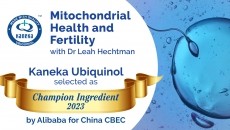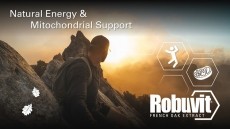Study finds vitamin E levels, physical activity, correlated with better cognitive performance in adolescents

The results build on existing literature supporting vitamin E’s importance in brain health. The researchers, affiliated with the Department of Rehabilitation Sciences at King Saud University in Riyadh, Saudi Arabia, suggested that, based on the results, “vitamin E levels and total antioxidant capacity could be used as indicators for improving executive function [managing thoughts and actions to get things done], physical activity, and academic performance among students.”
Studies have shown how vitamin E deficiency in early infancy may predispose children to conditions such as bronchopulmonary dysplasia and delays in the development of the central nervous system. Results from in vitro and animal studies have linked the vitamin to anti-inflammatory properties.
In addition to its role as antioxidant, vitamin E has been linked to various physiological improvements, including cognitive performance, in studies with diseased populations. A study from 2012 published in the journal Neurobiology of Aging, showed that people with decreased mental function and Alzheimer’s disease are more likely to have low blood levels of vitamin E tocopherols and tocotrienols.
But studies of vitamin E’s role in the cognition in a young, healthy population is still lacking, the researchers argued.
“There are, to the best of our knowledge, no studies that correlate the effects of physical activity and vitamin E levels on academic performance,” they wrote in their report, published last month in BMC Pediatrics.
“The aim of our study was, therefore, to assess the association between daily physical activity, vitamin E levels, and total antioxidant capacity (TAC) on the academic performance and executive functions of adolescents aged 15–18 years.”
Better diet for better school performance
The researchers analyzed data from 120 students (70 boys, 50 girls) around the age of 16 enrolled in six different senior secondary schools following the same academic curricula.
Data collected showed the students’ endurance and aerobic capacity (measured by maximum oxygen uptake on ergospirometry on a treadmill), physical activity (measured using a questionnaire), and school performance and executive function (grades in various subjects, while performance in math alone was used to measure executive function).
Physiological variables such as Body Mass Index (BMI) and waist-hip ratio were also collected.
The researchers then compared this data with information on the students’ total antioxidant capacity (using colorimetric assays) and vitamin E levels (through fasting blood serum samples).
“We found that BMI and waist-hip ratio were significantly higher in participants who were classified as having mild activity levels, while fitness and achievement scores with respect to academic performance and executive function were lower in comparison with the moderate and highly active groups,” they reported.
“On the other hand, significantly higher levels of α- and γ-tocopherol [and] total antioxidant capacity activity…were observed in participants in the moderate and high activity groups.”
Academic performance and executive function scores were found to be positively correlated with age, gender, α- and γ-tocopherol, TAC activity, and physical activity score; and negatively correlated with BMI.
“Children who face difficulties in learning may benefit from the provision of a balanced diet including vitamin E and other antioxidants,” they suggested.
Source: BMC Pediatrics
Published online, https://doi.org/10.1186/s12887-019-1528-1
“Association of physical activity, vitamin E levels, and total antioxidant capacity with academic performance and executive functions of adolescents”
Authors: Ahmad H. Alghadir, Sami A. Gabr, Zaheen A. Iqbal, Einas Al-Eisa














